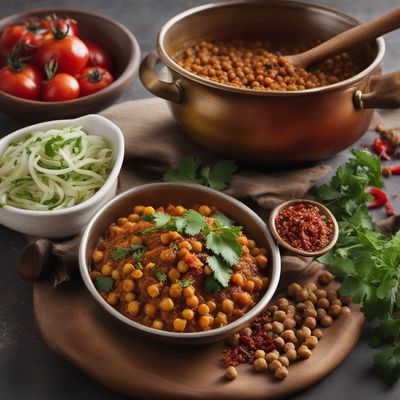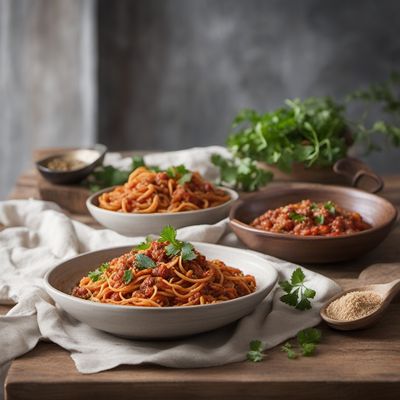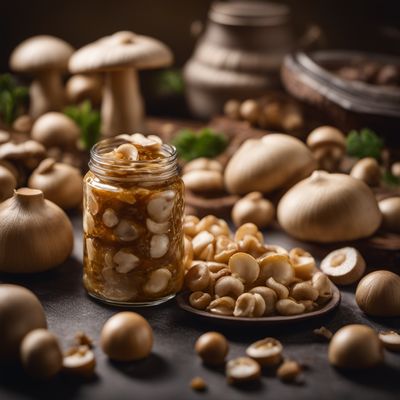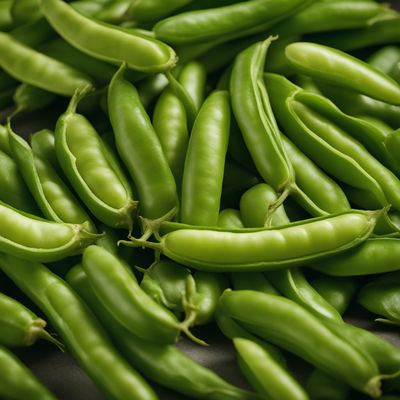
Ingredient
Canned/jarred vegetables
Preserved Garden Goodness: Unlocking the Flavorful World of Canned/Jarred Vegetables
Canned/jarred vegetables are vegetables that have been preserved through canning or jarring processes, allowing them to be stored for extended periods without losing their nutritional value. These vegetables are typically harvested at their peak ripeness and then processed and sealed in cans or jars, ensuring their freshness and flavor are locked in. They come in a wide range of varieties, including green beans, corn, peas, carrots, tomatoes, and more. Canned/jarred vegetables have a soft texture and retain their vibrant colors, making them visually appealing in dishes. They are a convenient pantry staple that can be easily incorporated into soups, stews, casseroles, salads, and stir-fries.
Origins and history
The practice of canning vegetables dates back to the early 19th century when Napoleon Bonaparte offered a cash prize to anyone who could develop a reliable method of preserving food for his armies. Nicolas Appert, a French confectioner, won the prize by developing a technique of sealing food in glass jars and heating them to kill bacteria. This method was later adapted and improved upon, leading to the widespread availability of canned vegetables. Canning became particularly popular during times of war and economic hardship when fresh produce was scarce. Today, canning is a common method of preserving vegetables, ensuring their availability year-round.
Nutritional information
Canned/jarred vegetables retain a significant amount of their original nutrients, including vitamins, minerals, and fiber. They are low in calories and fat, making them a healthy addition to meals. However, it's important to note that some canned/jarred vegetables may contain added salt or preservatives, so it's advisable to choose low-sodium options or rinse them before use.
Allergens
Canned/jarred vegetables do not typically contain allergens, but individuals with specific allergies should always check the ingredient labels for any potential allergens introduced during processing.
How to select
When selecting canned/jarred vegetables, look for products with minimal additives and preservatives. Opt for cans or jars that are free from dents, bulges, or leaks, as these may indicate compromised quality or spoilage. Additionally, choose vegetables that are packed in their own juices or water rather than heavy syrups or sauces to minimize added sugars and sodium.
Storage recommendations
Canned/jarred vegetables have a long shelf life and can be stored in a cool, dry pantry for up to two years. Once opened, any unused portion should be transferred to a covered container and refrigerated. Properly stored, they can maintain their quality for several days.
How to produce
While producing canned/jarred vegetables on a large scale requires specialized equipment and processes, amateur gardeners can preserve their own vegetables by using home canning techniques. This involves properly sterilizing jars, blanching the vegetables to preserve their color and texture, and sealing them in jars with the appropriate canning lids. Detailed instructions and recipes for home canning can be found in reputable canning guides or websites.
Preparation tips
When using canned/jarred vegetables, drain and rinse them under cold water to remove excess sodium or any unwanted flavors from the canning liquid. They can be enjoyed straight from the can or incorporated into various dishes. To enhance their flavor, consider sautéing them with herbs, spices, or garlic, or adding them to soups, stews, or pasta dishes. Be mindful of their softer texture compared to fresh vegetables and adjust cooking times accordingly.
Substitutions
Fresh or frozen vegetables can be used as substitutes for canned/jarred vegetables, although the cooking times may vary. N/A
Culinary uses
Canned/jarred vegetables are commonly used in soups, stews, casseroles, and salads. They can also be added to pasta dishes, stir-fries, or used as toppings for pizzas and sandwiches. N/A
Availability
Canned/jarred vegetables are widely available in grocery stores and supermarkets worldwide. N/A
More ingredients from this category
Recipes using Canned/jarred vegetables

Palauan-style Canned Vegetable Stew
Island Delight: Palauan-Inspired Canned Vegetable Stew

Omani-inspired Topoi with Spiced Lamb
Savory Omani Lamb and Chickpea Stew

Baxin with Spiced Tomato Sauce
Savory Delight: Baxin - A Flavorful Albanian Delicacy

New York-Style Pizza Croatian-Style
Zagreb-Zoned Pizza

North African Spiced Pasta with Lamb
Saharan Delight: Spiced Lamb Pasta with a North African Twist


